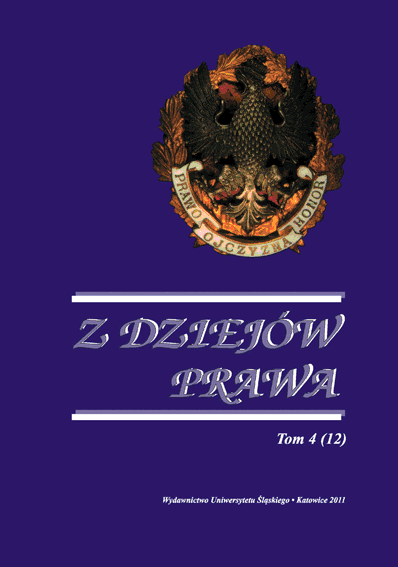Orzecznictwo karno-administracyjne w walce z alkoholizmem w okresie gomułkowskim
A criminal-administrative adjudication in a battle with alcoholism in Gomułka’s period
Author(s): Marcin ŁyskoSubject(s): Law, Constitution, Jurisprudence
Published by: Wydawnictwo Uniwersytetu Śląskiego
Summary/Abstract: The problem of alcoholism in a postwar Poland constituted a consequence of society demoralization, caused by years of occupation and negligence of the communist authorities within the scope of an educational work with young people. Alcoholism grew into a social problem after taking over the power by Władysław Gomułka in 1956, who conducted an anti-alcohol campaign mainly by means of repressive methods. A criminal-administrative adjudication played an important role in the policy of fighting with alcoholism. Hence, the anti-alcohol acts in the second half of the 1950s predicted strict penalties of arrest and fine for crimes committed under the influence of the alcohol. A repression of the offenders of this type of crimes was tightly connected with an anti-hooligan campaign initiated by the authorities as the predominating majority of hooligan crimes lied in alcohol abuse. That is why the notion of an alcohol-hooligan offence was created for the use of the practices of a criminal-administrative adjudication, treating the state of intoxication as circumstances deciding upon a hooligan nature of the crime. As a result, the cases concerning crimes from the anti-alcohol act were dealt with in summarily, specially introduced in order to punish the hooligans severely. The hooligans were among others persons addicted to alcohol, arrested for a maximum period of time alcohol or given high fines in exchange for substitute custody. In relation to alcohol addicts custody practically played a role of a means of a solitary nature, the usage of which served the purpose of hiding lacks in a detoxification treatment of people addicted to alcohol. A criminal-administrative adjudication also served a repression of people belonging to the so called social margin as the law did not predict the punishment for pathological cases such as prostitution, begging or vagrancy. Criminal-administrative bodies, on the basis of the construction of an alcohol-hooligan offence, inflicted the punishment of the main and substitute custody on people having no permanent place of residence and regular incomes. A criminal-administrative repression was used in a wide range by Gomułka’s authorities instead of making an attempt to prevent such social problems as drunkenness, prostitution, vagrancy or begging.
Journal: Z Dziejów Prawa
- Issue Year: 12/2011
- Issue No: 4
- Page Range: 249-281
- Page Count: 33
- Language: Polish

